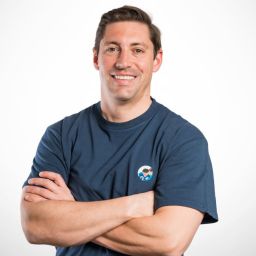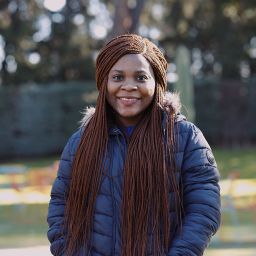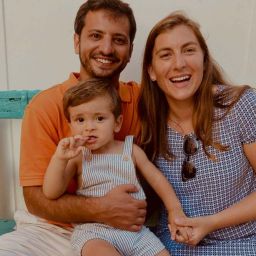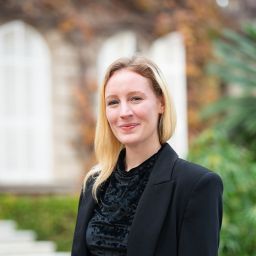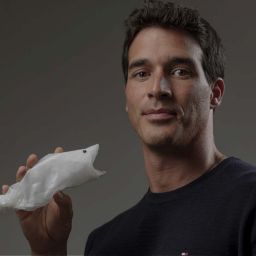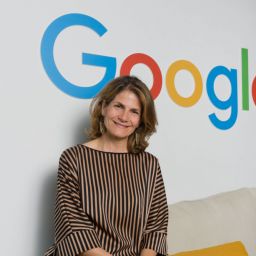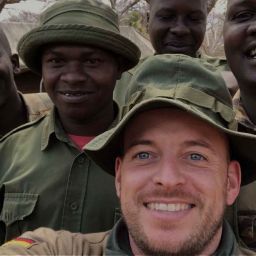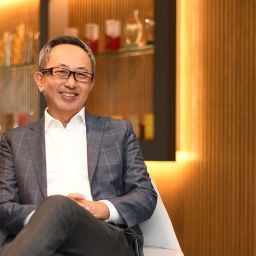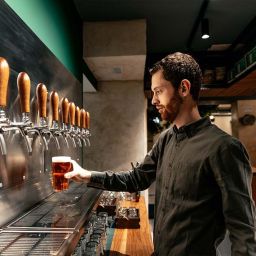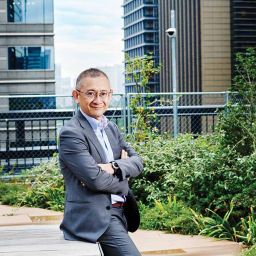Social impact is baked into RobinGood’s business model, which gives new meaning to the term “soul food.”
A man sets out on foot from Mali. He wishes to escape spiraling violence and economic precarity. He travels for two years, mostly walking, until he reaches Spain. For many, the story would end there: the man would be an undocumented migrant, unemployed and with few hopes for the future. But his story has turned out differently. Today he has a job with prospects, making artisanal food products sold in premium retail outlets throughout Spain.
The surprising twist in the story is courtesy of RobinGood, a Spanish brand that aims to be a positive force in society by sourcing locally where possible, employing people at risk of poverty or social exclusion, and bringing business back to depopulated towns.
Success story of Paolo Fusaro
Paolo Fusaro (IESE Executive MBA ’17) was on the lookout for a socially responsible project connected with food when he was introduced to Luis Font. “I’ve had the good luck to have a ‘normal’ life of privilege,” Fusaro explains. Born and raised in Italy, he has also lived in São Paulo; in Paris, where he was purchasing manager for private label products for the French supermarket chain, Carrefour; and now in Barcelona. By the time an EMBA classmate introduced him to Font, he had a hunger to transform the fortunes of those with fewer opportunities. Font had the idea to combine retail with social initiatives; Fusaro brought experience with brands. RobinGood was born.
Ingredients of success
Fusaro came from a successful career in the private sector – as a buyer for Carrefour, an auditor for Deloitte, and managing director in Europe of the HR firm, Polyglot. He also had one unsuccessful venture under his belt. “It’s true what they say: that failure is a learning experience,” he muses. “I knew how to buy, but I realized I needed to learn how to sell.”
By the time he launched RobinGood, he had learned that “you cannot do a social product without superior quality.” And superior strategy. Focusing on quality cookies and breadsticks, the first order of business was, simply, to make them delicious. The next order of business was to find a sustainable way to employ vulnerable communities.
In Spain, there are almost 12 million people – a quarter of the population – at risk of poverty or social exclusion. Helping all of them is clearly impossible. So RobinGood partners with special employment foundations, defined as either employing 51% vulnerable populations or giving 100% of dividends to social causes.
“The majority of our employees – 85% – have intellectual or physical disabilities,” Fusaro explains. The remaining 15% are from vulnerable migrant populations. In Spain, 65% of people with intellectual disabilities are unemployed, although the positive effects of work in creating stability and a sense of purpose are well documented. Working through these employment foundations, RobinGood is able to arrange jobs in a supported manufacturing environment and provide permanent contracts.
Another success story is Alex, hired in 2020. At the time, he was an 18-year-old Ukrainian with an intellectual disability who had been abandoned by both his parents and adoptive parents. Regular, dignified work has been key to turning his life around, giving him hope for the future and something to work toward. For Fusaro, it’s the knowledge of making concrete differences in the lives of people like Alex that satisfies him most about this venture.
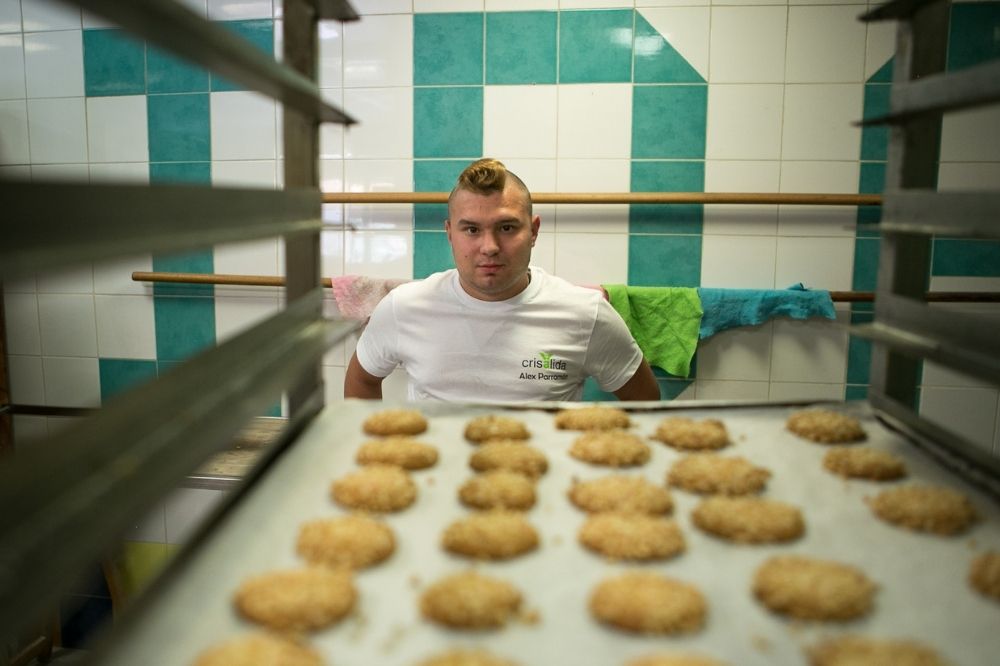
Revitalizing rural towns
“You can’t do everything at once, and I can’t employ all 12 million vulnerable people in Spain,” Fusaro admits. Even so, he has found ways to multiply the company’s impact.
One way has been to concentrate some of their employment efforts in small towns. Rural depopulation has been accelerating in Europe since the second half of the 20th century and large swathes of rural Spain are starved of human capital and investment. In Camporrells, near Huesca, the population has dropped to 137. RobinGood is the only company created in the area in the past decade and has provided work for 15 people (over 10% of the population). A further contract offered to help resettle a Syrian family not only adds to the population, it also crucially brings a child who will prevent the local school from closing. These are small changes, but Fusaro believes they can multiply exponentially over time. The idea is to replicate this impact throughout Spain and beyond.
RobinGood is available in a growing number of supermarkets and online, but Fusaro also has plans to increase their impact through partnerships with larger brands. Currently, Danone and Ben & Jerry’s are in the mix – multinationals that can help ensure RobinGood ends up at eye level in the supermarket placement battle.
More than pretty packaging
Many companies are striving to go green and earn prosocial credentials. But greenwashing and social washing are rife. How can a company that is really going the extra mile stand out? And how can consumers really know what they are getting?
The only way to fight it is with information: “Brands need to be more and more transparent,” says Fusaro. “Consumers are demanding that transparency.” Indeed, RobinGood makes it clear that all its packaging is plastic-free, compostable and biodegradable. It is currently in the process of trying to be the first Spanish food company to go “Plastic Negative.”
Brands should also build communities to make sure consumers are aware of what they are doing right, and they should subscribe to organizations that demonstrate their commitment. RobinGood, for example, is a certified B Corporation. Although this designation is not as widely known in Europe as in the United States where it started, it certifies the company’s seriousness in achieving social change. RobinGood currently scores over 80, which means the business is demonstrating high standards of verified social and environmental performance.
Fusaro hopes for a label in the future that will do for the social economy what the Nutri-Score label does for nutrition, clearly signaling to consumers the policies and ethics behind the food they eat.
For the moment, Fusaro’s plans are a mix of the practical and the aspirational. RobinGood has begun producing beer from leftover bread (bread is one of the products with the highest food waste). It also hopes to establish a training school to empower others at risk of social exclusion: while they may not be able to provide them all with direct employment, they want to be able to equip them with skills to help them find jobs elsewhere.
Beyond that, “We want to keep generating employment, to help democratize the social category of products – and to keep changing lives.”
Building a social enterprise
- Make the best product. If consumers pay more, they want quality, not just the feel-good factor.
- Don’t forget the business side. Social enterprises aren’t charities, and a product with no sales won’t employ anyone.
- Don’t reinvent the wheel. Partnering with associations and foundations makes it more likely your social enterprise will succeed. Experienced partners will have a better idea of how to adapt tasks to specific worker profiles and needs than you trying to figure it out for yourself.
- Build community. Make sure people know what you are doing right, and begin a conversation about transparency that all consumers can benefit from.
Training managers who employ people with intellectual disabilities
Together with the Jose Antonio Segarra Foundation, IESE Barcelona has launched a program for senior managers of companies in Catalonia, Spain, that employ people with intellectual disabilities. Taught in collaboration with the Catalan Federation of Disability (DINCAT), the program aims to help participants improve their management of such companies to guarantee their economic viability. The Jose Antonio Segarra Foundation is a private foundation created in 2022. As part of its mission to promote the work and ideas of the late beloved professor Segarra, the foundation encourages the employment of people with intellectual disabilities as a means of social inclusion.
To further complement this story, we recommend you to also read the following article “Good management” by Rafael Andreu, Josep M. Rosanas and Jose Antonio Segarra, published in IESE Business School Insight 153
Read the article How can an MBA help entrepreneurs?



